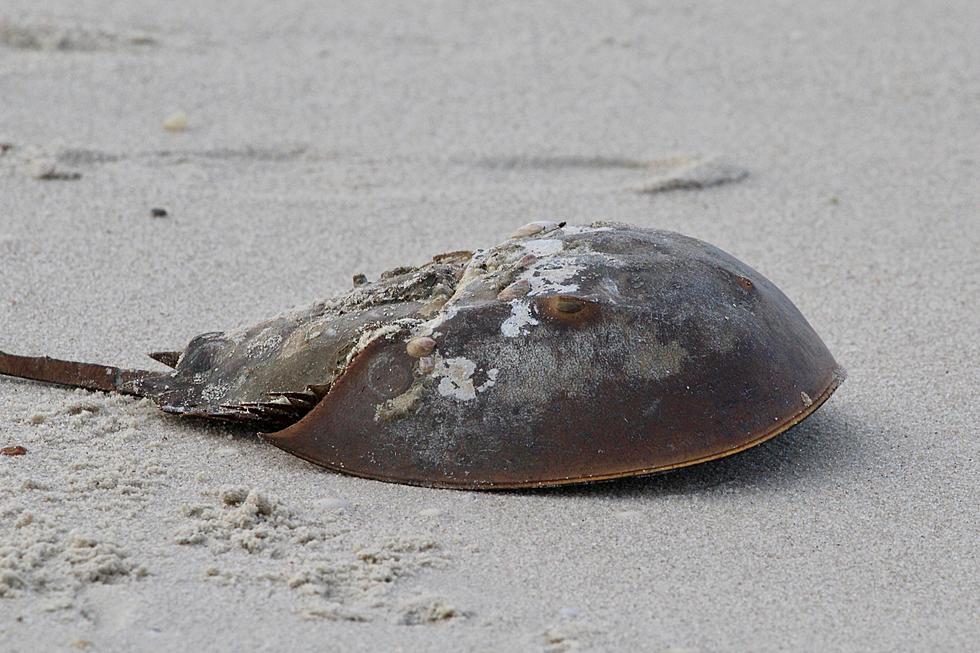
Why Are SouthCoast Horseshoe Crabs Disappearing?
There was a time when Atlantic horseshoe crabs were plentiful along the East Coast, including the SouthCoast of Massachusetts. Their numbers are dwindling.
But are they endangered?
AmericanOceans.com says, "Human activity, overfishing, and disappearing habitats currently threaten their existence."
While not included on the World Wildlife Fund's list of endangered species, the International Union for Conservation of Nature (IUCN) is concerned. AmericanOceans.com says IUCN "has mounted a global effort to educate the public on the importance of the horseshoe crab to biodiversity, local habitats, and humanity."
The Wetlands Institute and the Horseshoe Crab Recovery Coalition are lobbying to save the horseshoe crab from extinction.
TheVerge.com says, "Demand for horseshoe crab blood for vaccine and drug testing has contributed to population declines."
The site says the 450-million-year-old living fossil "will be pushed to the brink of extinction because of the value of their blood to the pharmaceutical industry."

According to TheVerge.com, the crab's blood "provides a natural source of Limulus Amebocyte Lysate (LAL), which is used to test vaccines, drugs, and medical devices to ensure that they aren't contaminated with dangerous bacterial toxins called endotoxins."
The good news is scientists have developed a synthetic version of LAL that is as effective as horseshoe crab-derived LAL.
The Massachusetts Division of Marine Fisheries says the crabs, which predate the dinosaurs by some 200 million years and that have claws that resemble boxing gloves, can grow up to two feet long.
The crabs eat clams, mussels and worms. They are commonly found in Massachusetts "while mating on sandy beaches in May and June."
Annual volunteer-based spawning beach surveys occur at beaches along the SouthCoast, including Wareham's Swift's Beach, on Cape Cod and the islands of Martha's Vineyard and Nantucket.
Wacky, Weird and Wondrous: Check Out the Sea Creatures Near the New Marine Monument
WATCH OUT: These are the deadliest animals in the world
More From WFHN-FM/FUN 107









